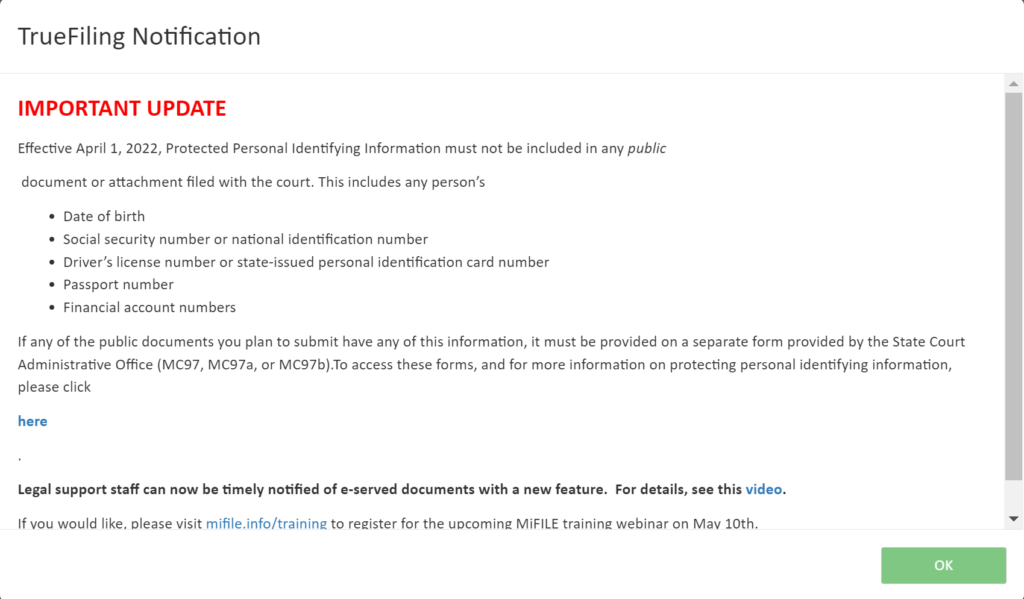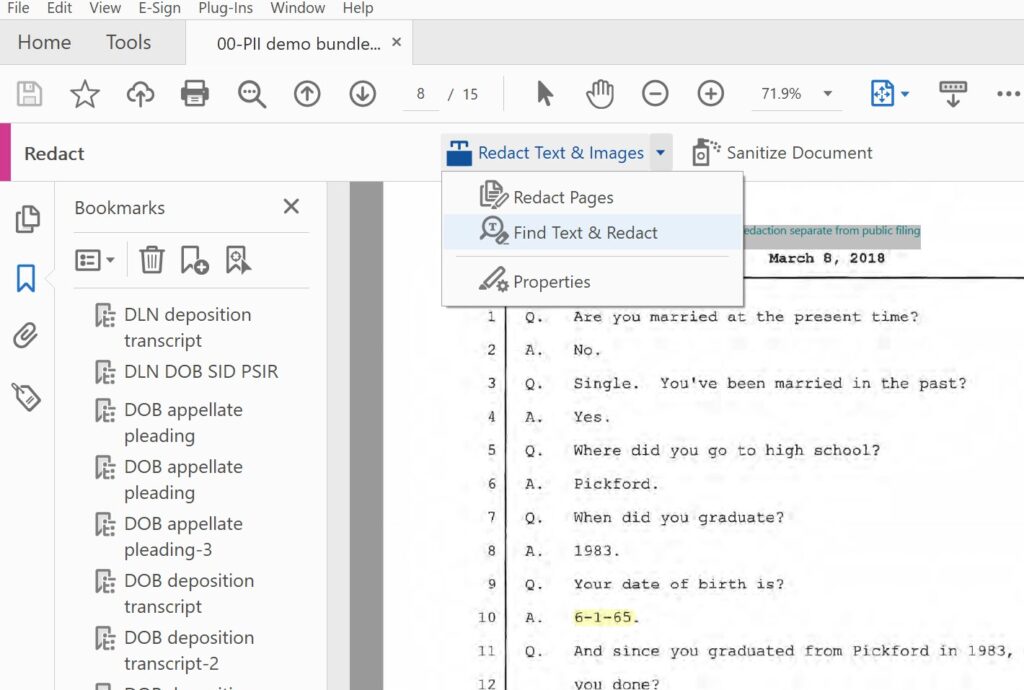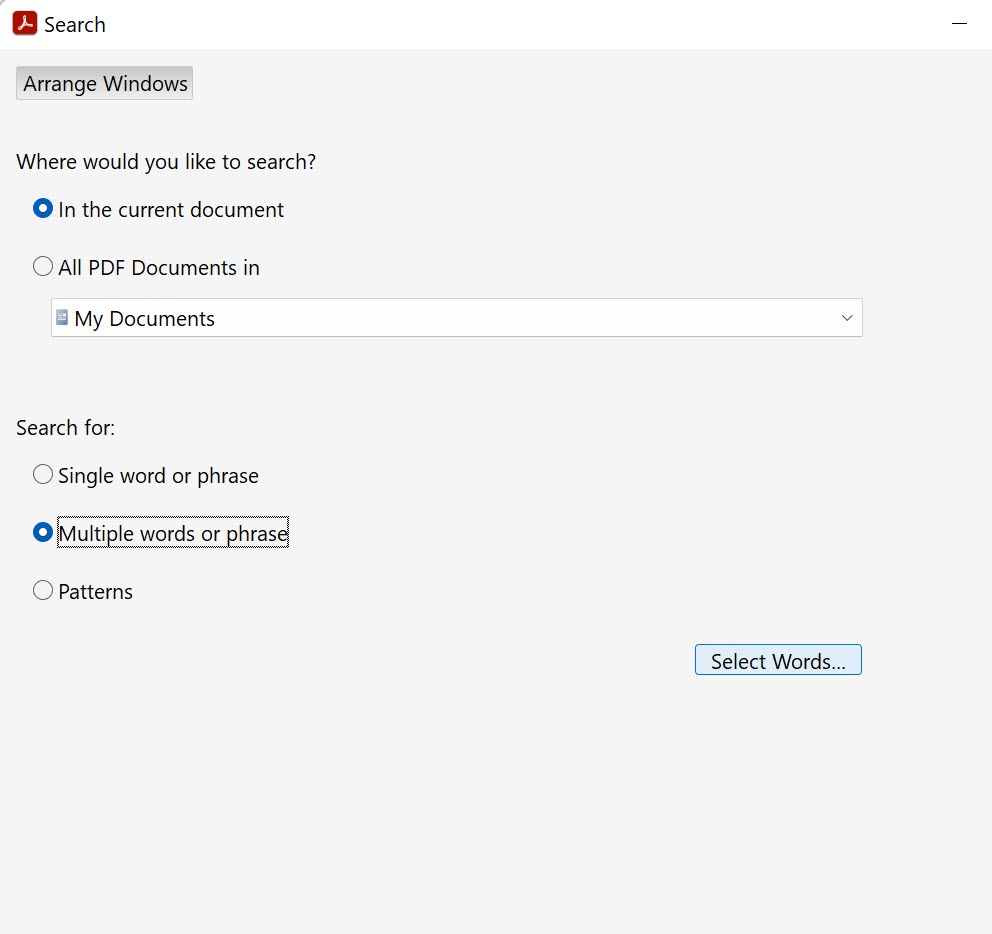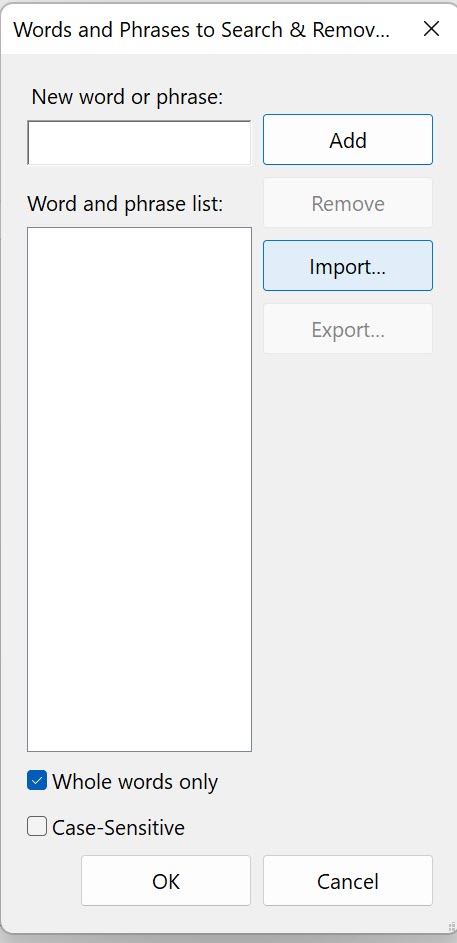Problem: Some civil attorneys, prosecutors, and criminal defense attorneys struggle with reviewing and redacting personal identifying information (PII) before their public documents are filed (traditional or electronically) with Michigan courts.
Why it really matters: Litigants, witnesses, and crime victims are unnecessarily placed at risk for identity theft or other possible harm when PII is not redacted in public court filings.
Imagine that you were a child who received poor medical care and your unredacted medical records made their way into a public court record.
How unfortunate it would be for a crime victim to have their personal identification information made public in a court filing.
What would be your reaction if you were deposed as an expert, personal information was testified to, and those portions of your transcript were not redacted before they were attached as a motion exhibit?
It happens. It should not. The fix is easier than many may realize.
Suggestion: Counsel should approach the duty to protect PII in public court filings with the same meticulous care expected with maintaining other client confidences and tech competency.
An MSC record pulse-check: Unredacted but protected personal identifying information (PII) was found among the 25,000+ pages of argument-related appendixes and 11,000+ pages of argument-related briefing filed in cases argued during the Michigan Supreme Court’s 2021-22 term.
The most common missed PII redactions:
- Date of birth
- Driver’s license number
- State identification number
The most common sources:
- Transcripts (deposition, trial, or other court hearings)
- Police reports (including traffic crash reports, incident reports, and interviews)
- Medical records
- Trial court forms (including felony complaint or information, register of actions, and judgment of sentence)
- Presentence investigation reports (including crime victim information); ahem, dear colleagues, PSIRs should never be filed in the public appellate record
- Trial court opinions (appellate courts have done it as well, consider this example)
- Trial court and appellate briefing
The court rule: Protected personal identifying information cannot be included in any public document or attachment filed with a Michigan court. MCR 1.109(D)(9)(a). (Separate authority protects social security numbers (AO No. 2006-2) and crime victim information (MCL 780.758)).
What information does MCR 1.109(D)(9)(a) protect?
- (i) date of birth,
- (ii) social security number or national identification number,
- (iii) driver’s license number or state-issued personal identification card number,
- (iv) passport number, and
- (v) financial account numbers.
A warning pop-up notification even greets efiling users.

You can protect your client (and third-party) PII! Even when the record is large, you can keep things from slipping through.
A solution/tool: Identifying and marking the PII info can feel overwhelming, especially if you plan to file 100+ exhibit/appendix pages. The “Find Text & Redact” tool within Adobe Acrobat Pro DC makes the task manageable.
Here’s a four-step approach.
Step 1: Make certain your entire .pdf file has been text-recognized (OCR’d)
Step 2: Make a search list and save it in a .txt file
This short video shows how to create a .txt file.
Think about your case and create a list of the “known” words, phrases, and numbers you want to redact or be alerted about.
Consider and include variations—a birthdate could be listed as 2/8/1959, 02/08/1959, 2/8/59, February 8, 1959, and so on.
List each word or phrase on its own line when creating the list in the .txt file. There is no need for other separators.
I have found this “starting” list helpful to identify file areas that will need closer review:
DOB
DOB:
D.O.B.
D.O.B.:
birthdate
birthday
day of birth
date of birth
born on
SSN
SSN:
S.S.N.
S.S.N.:
Soc. Sec. no.
Soc. Sec. #
SS#
Social Security Number
Social Security #
SOC:
DLN
DLN:
D.L.N.
D.L.N.:
Driver’s license number
driver license number
D.L.#
Driver’s License
Operator’s License
OLN
OLN:
Passport Card No
Passport No
SID
SID:
S.I.D.
S.I.D.:
SID#
Step 3: Open the .pdf and select “Find Text & Redact”
With your .pdf file open, go to Edit → Redact Text & Images → Dropdown to “Find Text & Redact”

Select “OK” at the popup window

In the new “Search” window, select:
- In the current document
- Multiple words or phrase
- “Select Words…” button

In the new window, select the “Import…” button
- Find and select the .txt file you earlier created
- Check “Whole words only” and OK

Reviewed the highlighted “hits” pre-marked in the .pdf file. For the pre-marked phrase, right-click on it and delete and then select the actual content that should be redacted (like the actual date of birth, driver’s license or social security number, and the like).
The point of this approach is to guide the reviewer to possible areas where content needs closer review for potential redaction.
This video may help:
Step 4: “Apply” the Redactions
Marking the text for redaction is not the final step. Once you are satisfied that all of the necessary content to be redacted has been “marked,” you must select the “Apply” button so that Adobe will actually and permanently redact the content.
Interested in learning more? Visit Adobe’s how-to page.
Bonus: Are you staring at a 700-page, unbookmarked appendix filed by another party in your case and want to make certain they redacted your client’s PII? You can apply the same bulk “find text” steps using Adobe Acrobat Pro DC. Try it yourself:
- Download a free trial of Adobe Acrobat Pro DC if you don’t already have a licensed copy.
- Create the .txt file as described in Step 2.
- Download this demo 15-page demo file I assembled from different public court filings. (The originals were not redacted but I’ve pre-applied some redactions for educational purposes.)
- Perform the bulk search outlined in Step 3 and scroll through the pages to see what is flagged for review.
Easy-peasy, right?
There is a special responsibility to protect PII in public court filings (both paper and electronic). Please adopt best practices and spread the word.
Still feel lost and would like some help in reviewing and redacting your files? Reach out to me and let’s collaborate.
